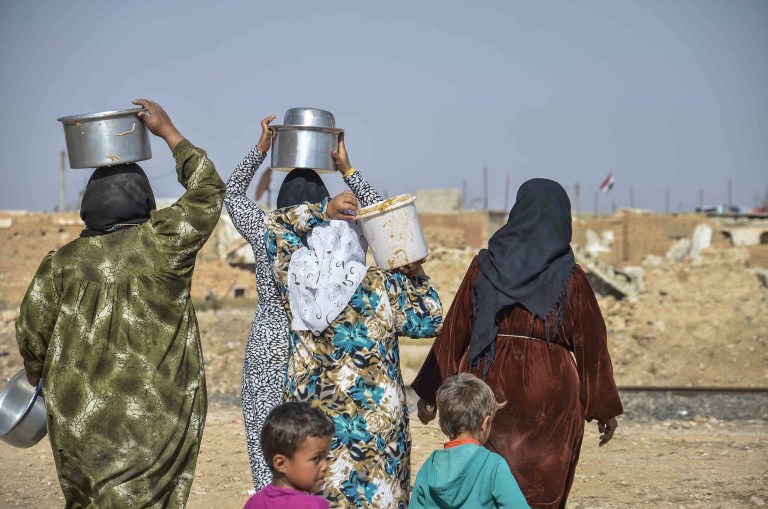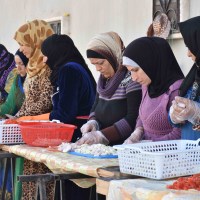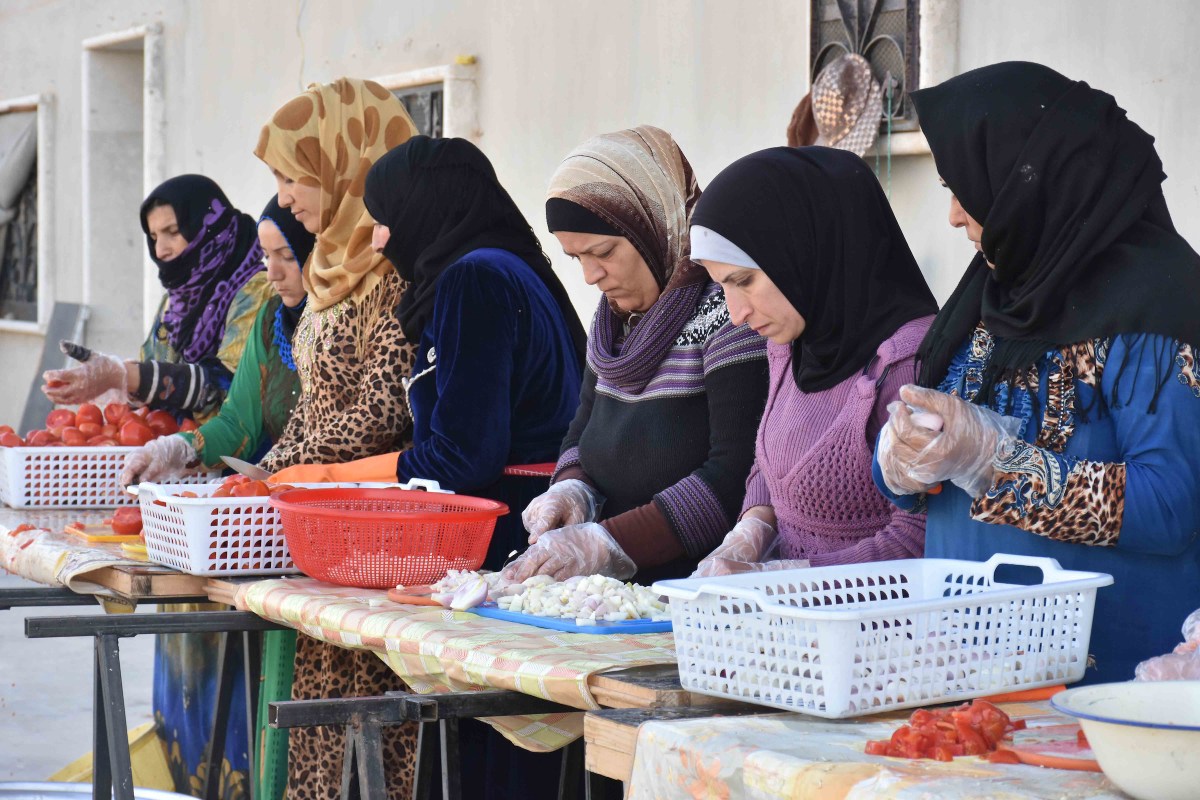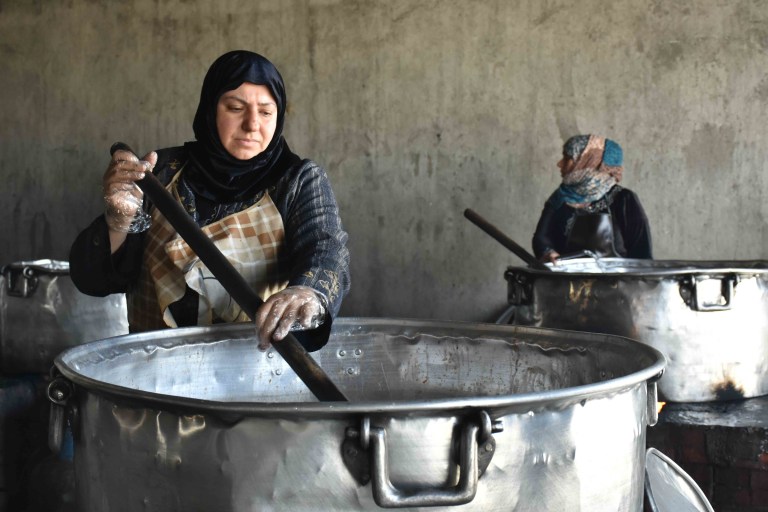
You continue cutting grapes in half so your children don’t choke, even though they’re quite old enough now to manage grapes on their own.
You go to three different grocery stores looking for the only brand of peanut butter your son will eat these days, and pray the whole way home that he still likes peanut butter in the morning.
You stay up late searching Pinterest for recipes because your daughter announced that she’s vegan, and none of your midweek staples work anymore.
This is what we do. When our days are too full, and the world seems to be unraveling at the seams, we continue to take care of those we love as well as we can.
When we feel helpless to deal with the world’s troubles, we can still care for our families in ways they will probably never notice.
It’s no different in for families in Syria.
Deir ez-Zor is one of those places coming apart at the seams. It’s a Syrian city halfway between Aleppo and Baghdad. It rarely makes the news anymore, even though violence continues to tear through the region.
The war in Syria began as an internal conflict, but today soldiers from the United States, Russia, Turkey, and Iran all have boots on Syrian soil, while Israel is bombing from the air, and ISIS continues to hold onto small pockets of land in the country’s east—not far from Deir ez-Zor.
To say the situation there is overwhelming is an understatement. In the midst of it all though, you continue to make sure that 5,000 of the most vulnerable families in Deir ez-Zor are able to eat a hot meal every day.
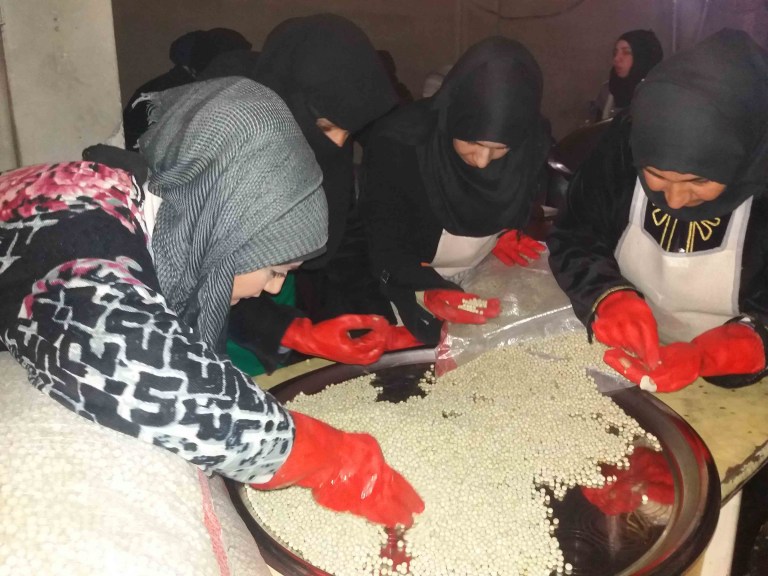 Looking at the latest images from our emergency feeding center, I couldn’t stop staring at one photo of women sorting beans.
Looking at the latest images from our emergency feeding center, I couldn’t stop staring at one photo of women sorting beans.
If you have ever cooked dry beans from scratch, you know how the cooking directions always begin with sorting the beans to pick out any small stones. When cooking for a family, it’s easy enough to sort beans in a colander. But the women we hired to cook in our kitchen at Deir ez-Zor—they cook enough beans for 31,000 people!
Yet week after week, they stand bent over a table sorting beans by hand.
They cook for thousands, yet they cook just like they do for their own families.
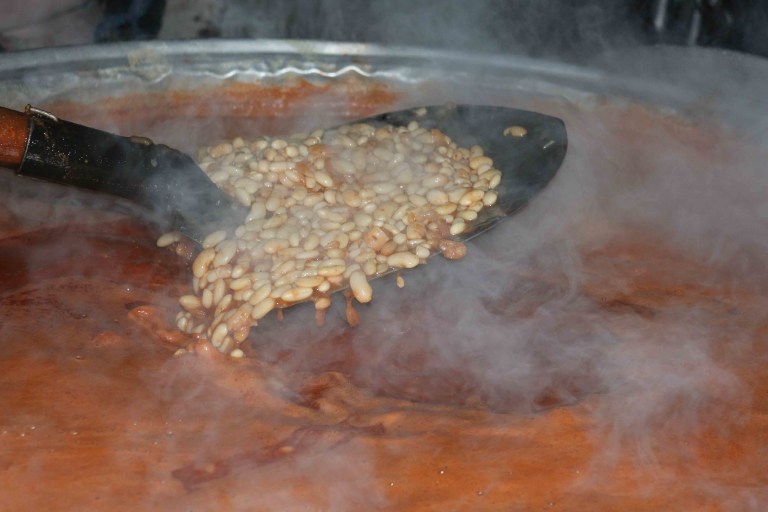
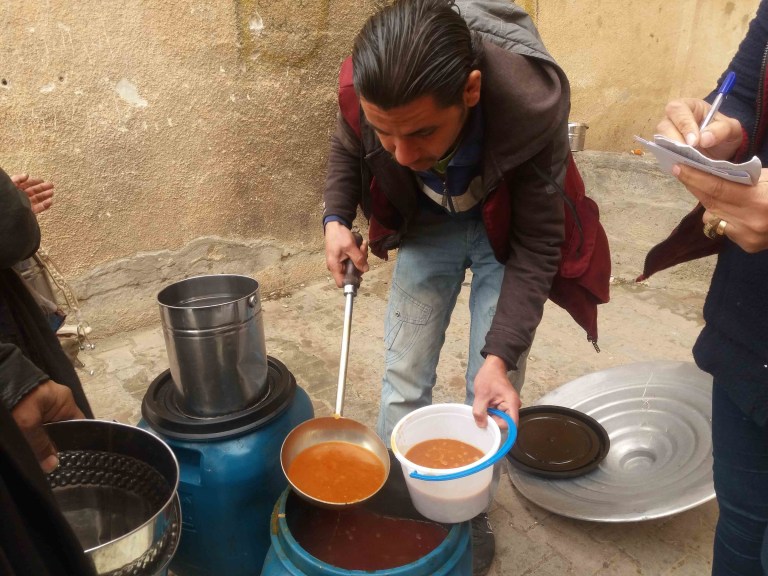
The cooks snap the pasta in half before boiling it, even though there’s no need: the aluminum cooking vessels are massive! But the women broke the pasta in half, just like they do at home when they’re cooking for their own families.
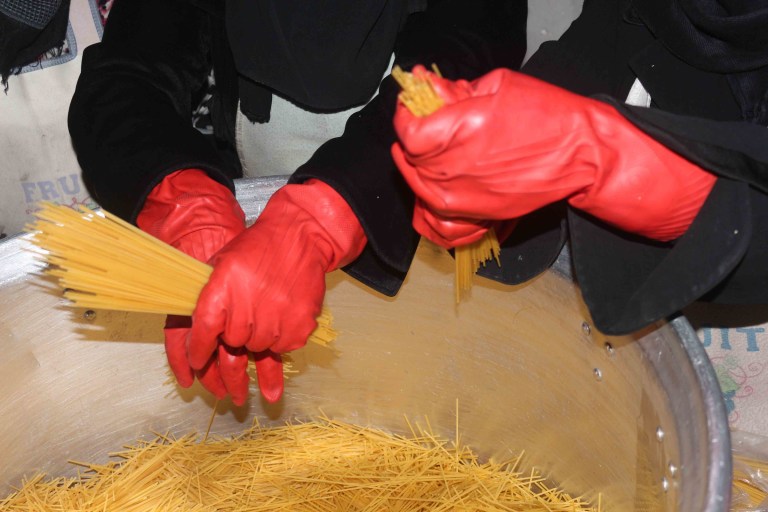
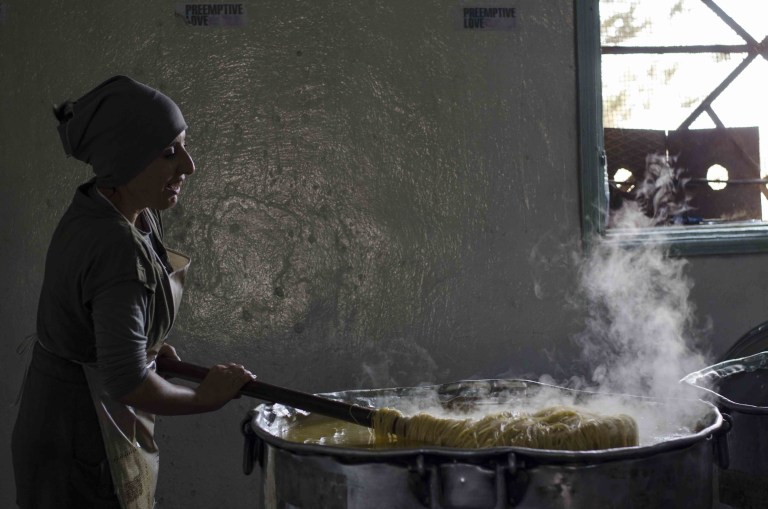
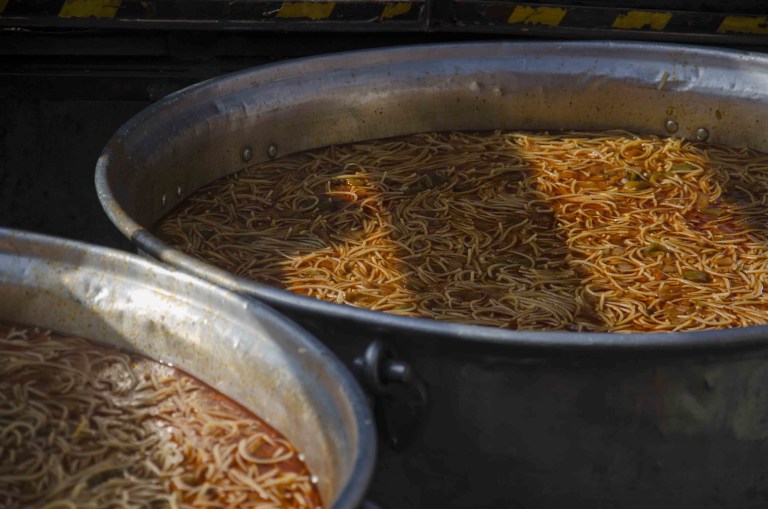
They work shoulder to shoulder, cutting fresh tomatoes and cucumbers for a traditional salad. There is no electricity in the kitchen, so they work inside when there’s enough light through the windows, and outside when more light is needed.
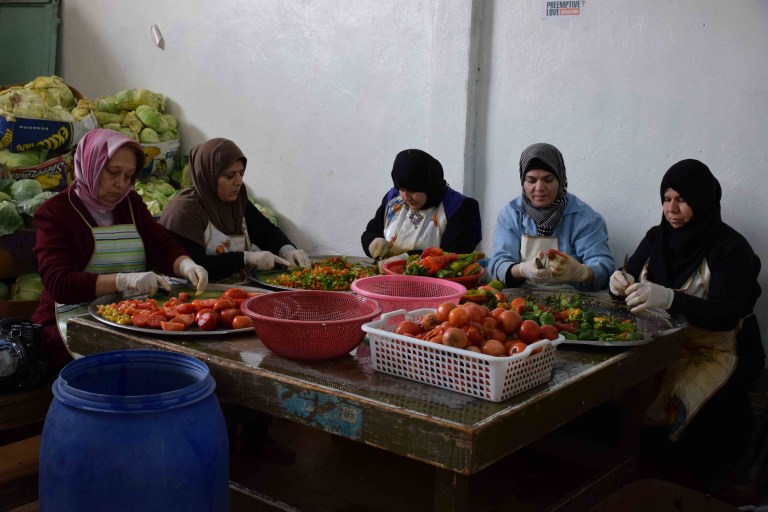
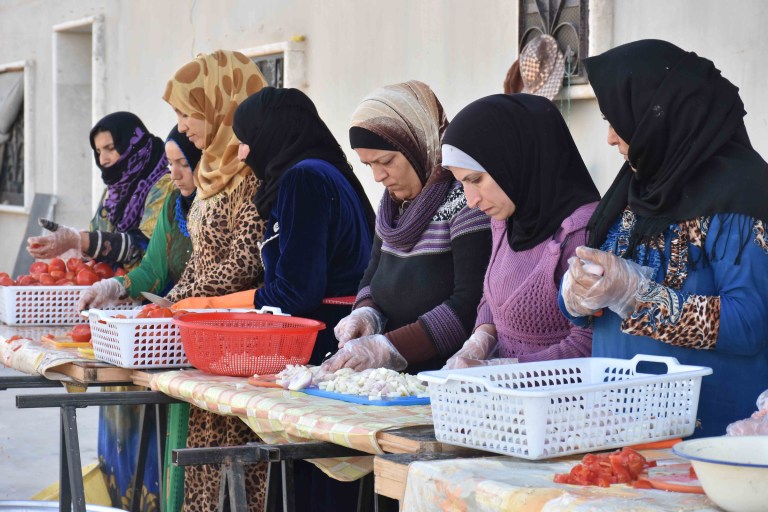
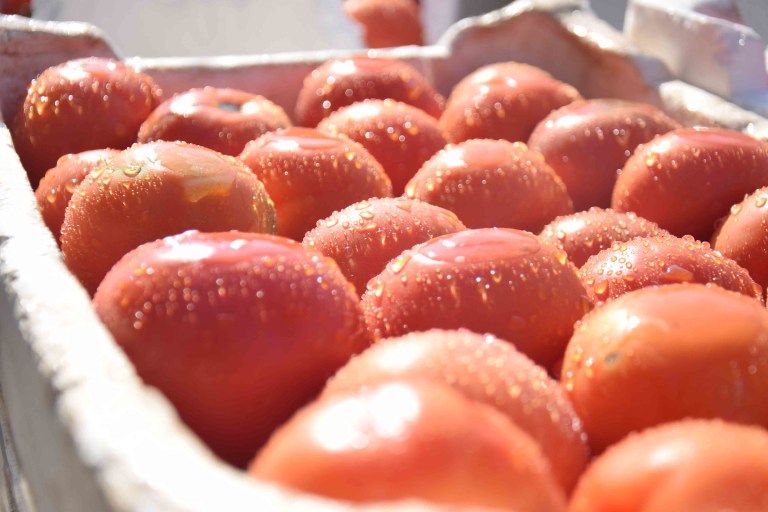
This is what we do. We feed our neighbors like they are family.
We cook pasta and make salad just like we do for our own family, so our neighbors feel the comfort of familiar food.
We spend our evening looking for the right peanut butter. We butter bread right to the (crustless) edges. Our love is shown in every meal we serve.
This is what we do. This is what your sisters caring for war-torn families in Syria do.
When the world is overwhelming, and we don’t feel like we can do enough, we love the people around us—and by doing that, we change our world.
